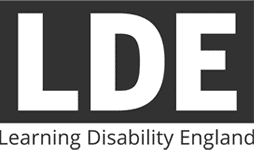Changing Our Lives works with people with learning disabilities and autistic people in hospital settings across the country.
The average length of stay for these individuals is around five years, however some people have remained in hospital for over fifty years.
There are three strands to our work: planning, advocacy and facilitation.

Planning
Often referred to as person centred planning, our approach to planning differs to that of many organisations. We spend time developing a relationship with the person, sometimes over several months, before we start to plan.
The plans we create alongside people all look different and are pulled together in different ways, but our planning process has the following principles at its heart:
- It is based on our belief that with the right support everyone can live an ordinary life.
- We work at the pace of the person.
- We focus on outcomes.
- We ensure the plan is acted upon and embedded in plans for the person’s future.

Advocacy
We are most commonly referred to as a person’s advocate by their wider team.
We are not statutory advocates and seek to supplement rather than replace those acting in that role in a person’s life. We are independent and sit outside of services.
Our approach to advocacy is about:
- Focusing on upholding the person’s rights.
- Supporting the person to express their views and wishes or what is believed to be their views if they are not able to express them in a way others can understand.
- Acting beyond direct instruction to ensure the person moves closer to an ordinary life.
- Being an ally to the person — standing alongside them in their journey towards an ordinary life.
- Supporting them to hold hope that things can be different.
- Acting as a critical friend to the team around them.

Facilitation
We are more than advocates in that we are:
- Change oriented — we are an active member of the team around the person whilst remaining independent of services.
- Conscious of the privilege of being in someone’s life — we look to understand their life as it is now and how we can move things forward.
- Problem solvers — we seek to ensure the right people and expertise are involved in and around the person to improve their quality of life in the immediate term.
We are flexible but tenacious in our approach. We will fill gaps, build and repair relationships, and push for progress with senior leaders. At the centre of everything we do when working with individuals is the following question:
What will help them to move forwards towards an ordinary life?

National recognition
Working as a rights based advocate alongside people who are stripped of their most basic human rights is a challenging role. We are often a lone voice, fighting against systems that don’t work for people who have been labelled as ‘challenging’ and ‘dangerous’, dehumanised by the very institutions that are meant to support them. In Camden, our work to achieve the release of Kasibba, a Black African woman kept in long-term segregation for a quarter of a century, was complemented by working alongside a multidisciplinary social work team. This work, which gained national recognition, is reflective of the quality and tenacity of all our person-centred planning and advocacy work.
Beyond the labels and beneath her beautiful Black skin…
Kasibba was inappropriately detained in a mental health hospital all her adult life.
Mythologised and ensnared within a rhetoric of fear and racist tropes, she was deemed ‘too complex’ to work with and ‘too unpredictable’ to be allowed out of long-term segregation.
But we knew that this was not the case.
Kasibba now lives in her own home with her own staff team and is happily creating her own version of an ordinary life. She has reclaimed control of her life and is finding happiness by choosing what she wants this to look like.
Read her story here.





